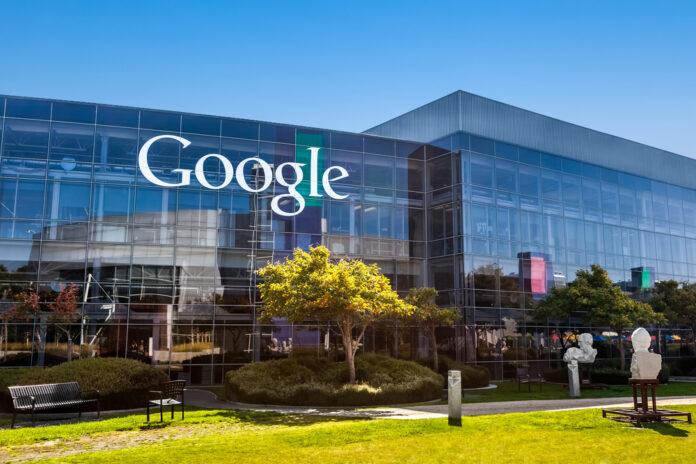Alphabet Inc., the parent company of Google, has faced a challenging start to 2025, with its shares declining approximately 12% year-to-date, underperforming the broader technology sector. As of April 17, Alphabet’s Class C shares (GOOG) closed at $153.36, down from $190.44 on January 1, while Class A shares (GOOGL) traded at $151.16, reflecting a similar retreat. The stock’s downturn, analysts say, stems from a potent mix of macroeconomic pressures, regulatory setbacks, and competitive challenges in artificial intelligence, despite robust financial performance.
The year began with Alphabet riding high on its fourth-quarter 2024 results, reported in February, which showcased a 12% revenue increase to $96.5 billion and a 31% surge in earnings per share to $2.15, exceeding Wall Street estimates. Google’s core search business grew 12.5% to $54 billion, YouTube ad revenue climbed 13.8% to $10.5 billion, and Google Cloud’s 30% revenue jump to $11.96 billion underscored its growing enterprise traction. Yet, investor enthusiasm was tempered by guidance signaling higher capital expenditures for 2025, particularly for AI infrastructure, which sparked concerns about margin pressure. Shares fell 7% in after-hours trading following the earnings release, setting a cautious tone for the year.
The broader market’s reaction to President Donald Trump’s tariff policies has hit Alphabet hard. In early April, fears of a 10% blanket tariff on imports, with steeper duties targeting China, triggered a 2% drop in Alphabet’s stock on April 17, part of a tech-sector sell-off exacerbated by supply-chain concerns. A temporary 90-day tariff pause announced on April 9 spurred a brief rally, but uncertainty persists, with analysts noting Alphabet’s reliance on global hardware partners for Pixel devices and data-center components. “Tariffs are a wildcard for tech giants like Alphabet, where cost increases could erode profitability or force price hikes,” said Morgan Stanley analyst Brian Nowak, who lowered his price target to $185 from $210.
Regulatory headwinds have further clouded Alphabet’s outlook. On April 17, a federal judge ruled that Google illegally monopolized parts of the digital advertising market, marking the company’s second antitrust loss in a year. The decision, which could lead to structural remedies or a breakup, sent shares down 2% that day and has fueled speculation about divestitures, such as Google’s ad network. Posts on X reflect investor unease, with some citing the ruling as a drag on Alphabet’s 20% year-to-date decline, lagging peers like Nvidia and Microsoft. The company also faces a £5 billion lawsuit in the U.K. over search dominance, adding to its legal burdens.
Competition in AI remains a sore point. While Alphabet has invested heavily in its Gemini AI model and generative AI tools like Veo 2 for video creation, it trails OpenAI’s ChatGPT in consumer adoption. X users have noted ChatGPT’s first-mover advantage and higher download rates, pressuring Alphabet’s search monetization prospects. “Google’s AD business downfall” and AI competitive noise are contributing to a low price-to-earnings ratio of 19x 2025 earnings, compared with 30x for Apple, suggesting undervaluation but also investor skepticism, according to Bank of America analysts.
Despite these challenges, Alphabet’s fundamentals remain strong. Its cloud segment and Waymo autonomous driving unit, which reported 200,000 weekly paid rides, are bright spots. Analysts project 2025 revenue of $386.36 billion, a 11.2% increase, with earnings per share of $8.71. The consensus price target of $198.93 implies a 31.6% upside, with 68 analysts rating the stock a “Strong Buy.” Waymo’s leadership in self-driving technology, bolstered by a $5.6 billion funding round, has drawn particular praise, with Forbes estimating it could push shares toward $500 by 2030 if scaled effectively.
Technical indicators, however, signal caution. Alphabet’s stock is trading below its 50-day moving average, and 17 of 26 technical signals point to bearish sentiment, with the Fear & Greed Index at 39, indicating fear. CoinCodex forecasts a year-end price range of $158.79 to $212.10, while more pessimistic outlooks, like LongForecast’s $121 by November, highlight near-term risks.
As Alphabet prepares to report first-quarter earnings on April 24, investors are focused on CEO Sundar Pichai’s AI strategy and updates on regulatory battles. With a market capitalization of $1.95 trillion, Alphabet remains a tech titan, but its ability to navigate tariffs, antitrust scrutiny, and AI competition will determine whether it can reclaim its highs above $207.78, reached in February. For now, Wall Street sees opportunity amid the volatility, but the road ahead is fraught with uncertainty.
By: Montana Newsroom staff




